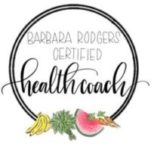Most of us have been told at one time or another, to slow down and be more mindful. Unfortunately, we live in a fast-paced society where many people are always on the go and trying to accomplish many tasks. When we run ourselves ragged and focus on too many things, it is hard to be present. Many people eat on the run too and don’t allow themselves time to sit and enjoy the experience. During times of stress however, it is important to slow down and eat the right foods that nourish your body, so you feel calmer. When you are calmer, you can focus more. Following are 7 ways to eat more mindfully, I wanted to share.

What Is Mindful Eating?
Eating mindfully allows you to focus on what you are eating, how it tastes, how it was prepared, how it makes you feel and how it affects your well-being. Mindful eating can be viewed as the sum total of the overall experience.
7 Ways To Eat Mindfully
- Create A Shopping List—Creating mindful eating patterns starts with a good shopping list. Make sure you sit down and create a list of food items you will need to make your meals for several days or the week. You can start by thinking about what you want to cook or creating a meal plan. Next you can check your refrigerator and pantry and write down any items you don’t already have on hand. When out shopping, make sure you shop the perimeter of the store and stock up on plenty of produce and reach for those rainbow colored foods. Avoid the middle aisles where most processed foods are found, unless you need something specific that is on your list.
- Concentrate On Cooking—Many people like to snack or nibble while they cook, which can actually take away from the experience of eating your meal. Try to avoid snacking while preparing food and concentrate on the process instead. Take time to read the recipe, chop your vegetables or prepare a sauce. Some people enjoy listening to calming music as they cook.
- Focus On How You Prepare Your Plate—Start with small portions and notice how you feel after. Some people like using smaller plates, which helps trick your brain into not wanting more. Focus on filling most of your plate with vegetables. In my book, Wholey Cow A Simple Guide To Eating And Living, I talk about the importance of using nutrient-dense greens as a ground cover for your plate, so you can reap their benefits. Additionally, keep in mind that a serving of meat should only be the size of your fist.
- Make Sure You Sit Down—Eating on the run has become common place. It is hard to stay focused if you don’t take time to sit down and relax, making it impossible to truly enjoy your food. Sit down, breath and relax a bit. You will feel much better if you take a little break and concentrate on the act of eating.
- Give Thanks And Praise—The act of saying a few words of gratitude before your meals has a positive effect on both yourself and the food. In fact, studies show that blessing your food actually changes its energy. When we stop and give thanks for what we have, we naturally feel calmer and more relaxed. It also makes us be more present. Gratitude helps lower stress levels too and can enhance our overall well-being. It is no wonder that many cultures and religions have practiced praise, thanksgiving and blessings over their foods for centuries.
- Eat Slowly—Growing up, your mother may have told you to slow and not eat so fast. Children as well as adults need to take this advice to heart. It is important to chew your food slowly to truly taste all the flavor. Chewing slowly allows you to fully utilize your sense of taste. It also helps aid in the digestion process.
- Use All Of Your Senses—When you prepare and eat your food, make sure you are aware of the colors, texture, smell and even the different sounds you may hear. Try and think about the various ingredients and how different herbs, spices and seasoning enhance the taste of your food. Eating this way makes the whole experience more enjoyable and allows you to be more present.
Thanks for reading!
Barb










